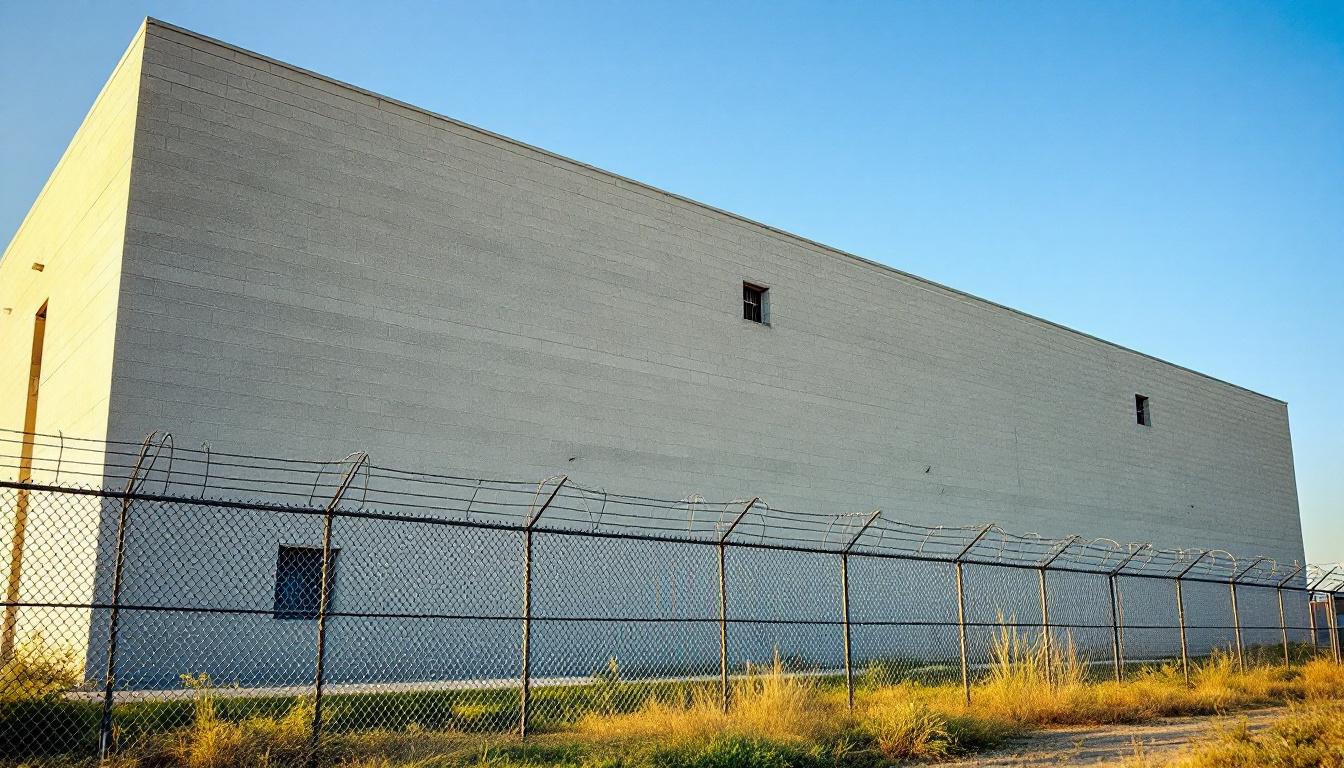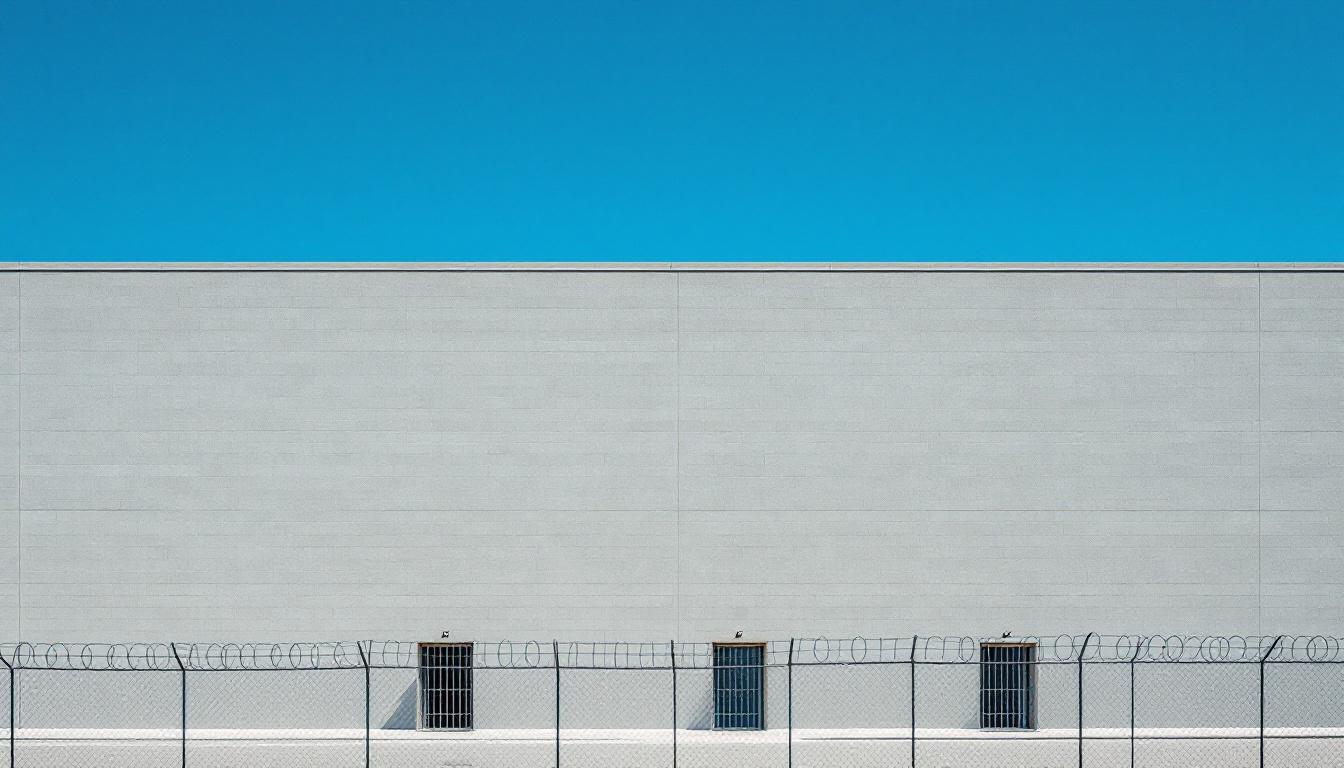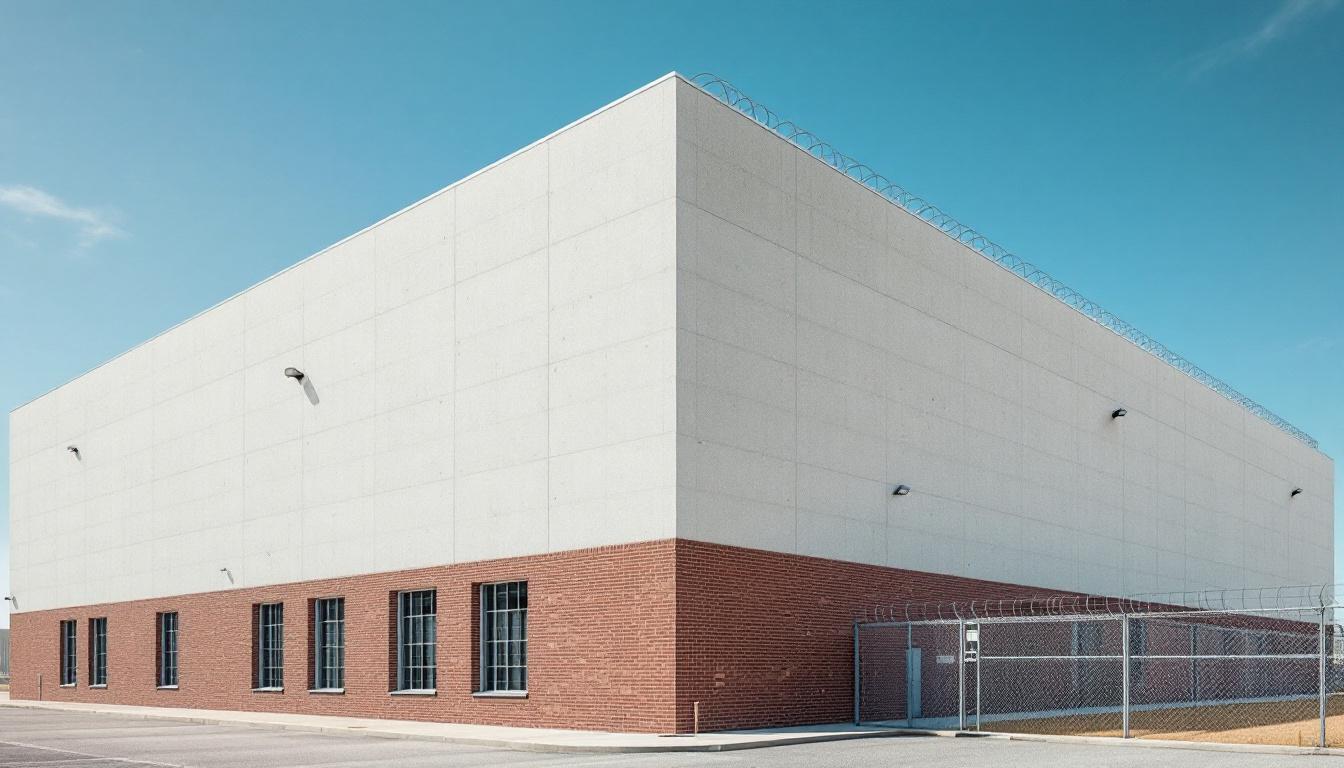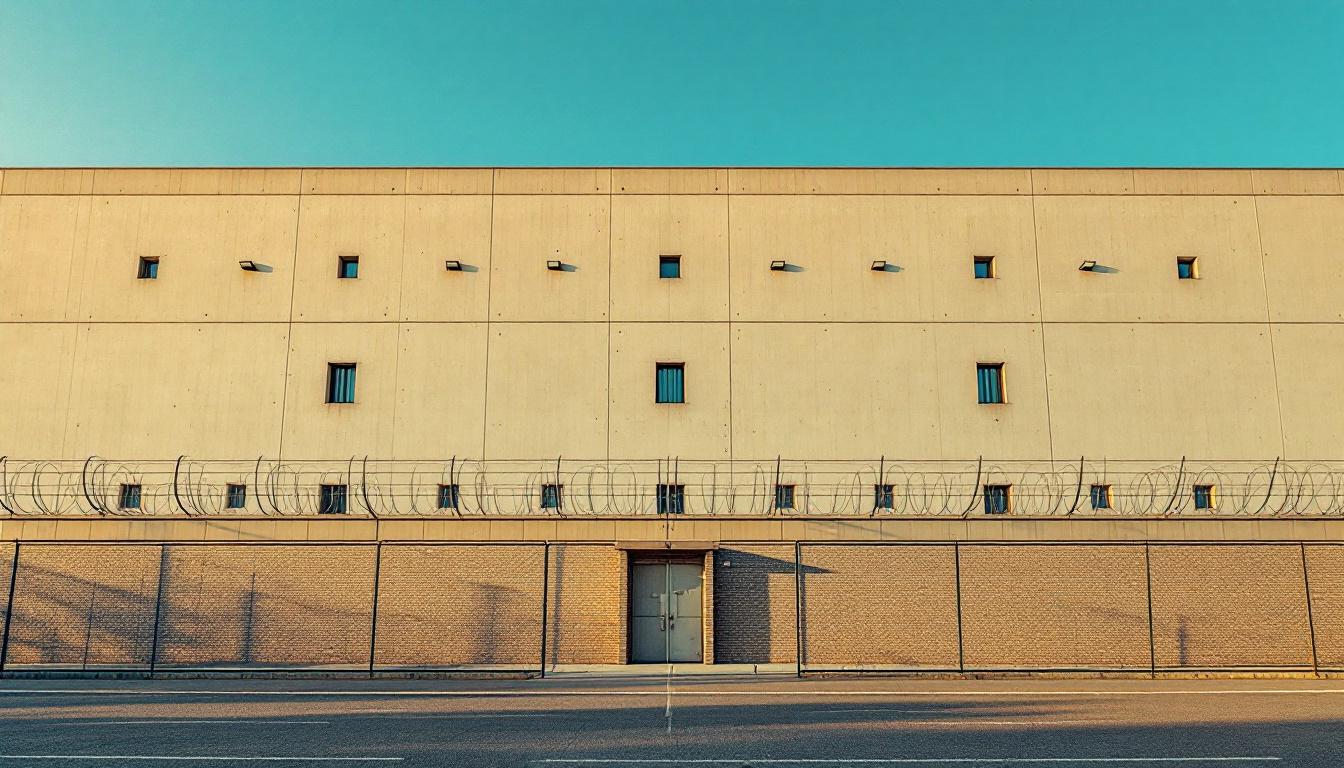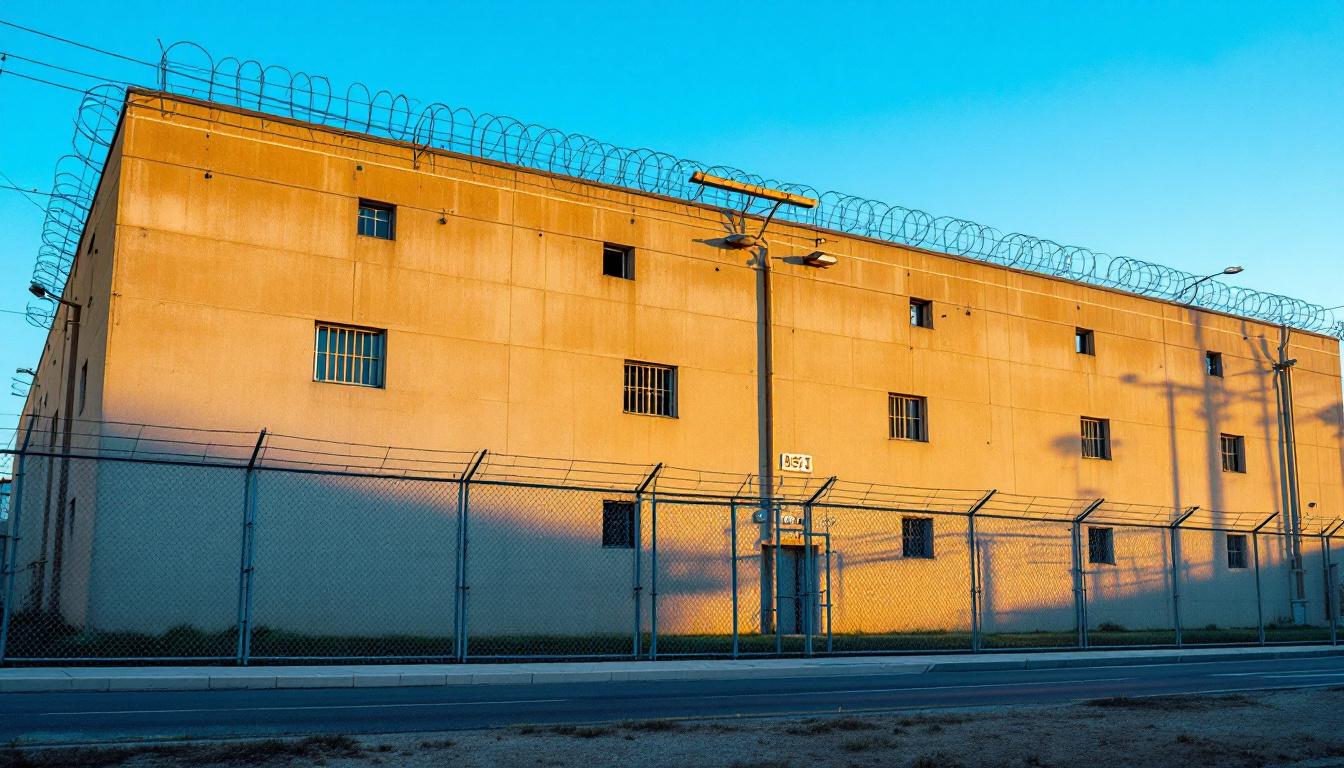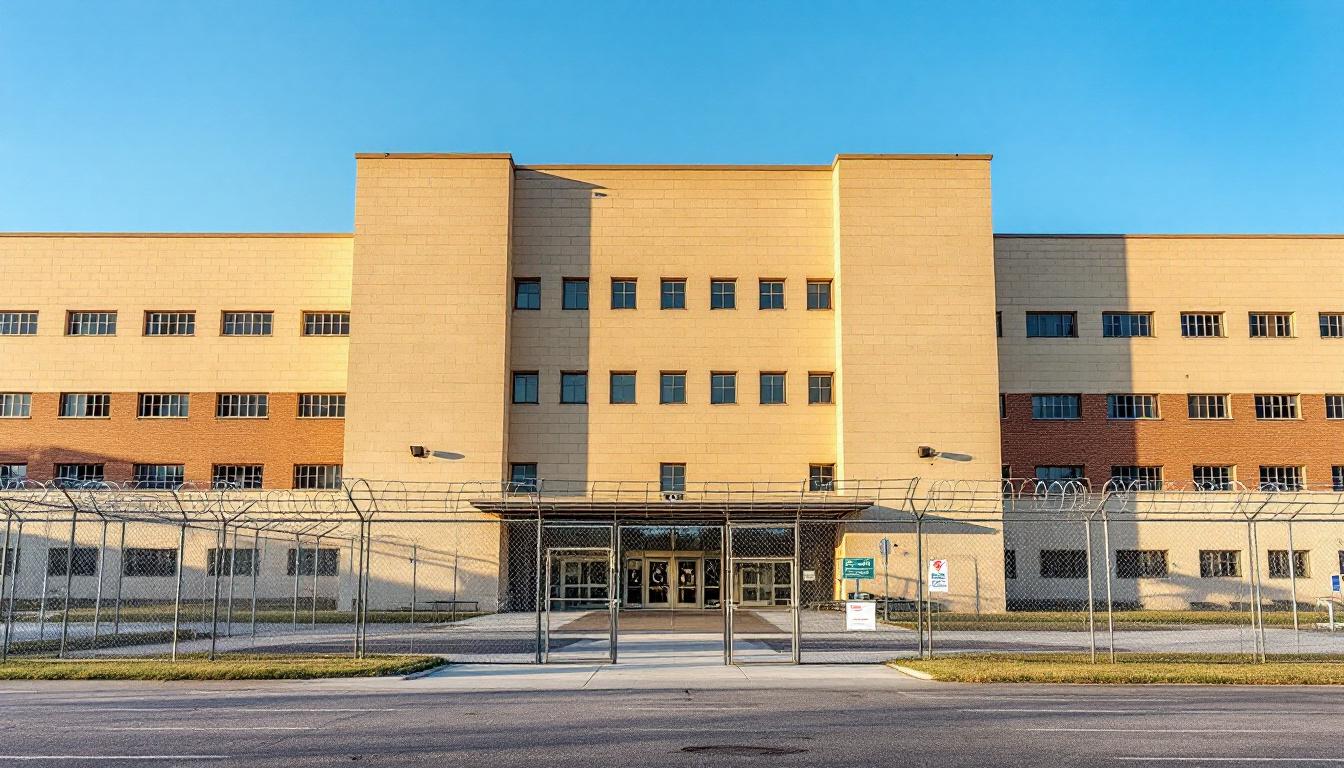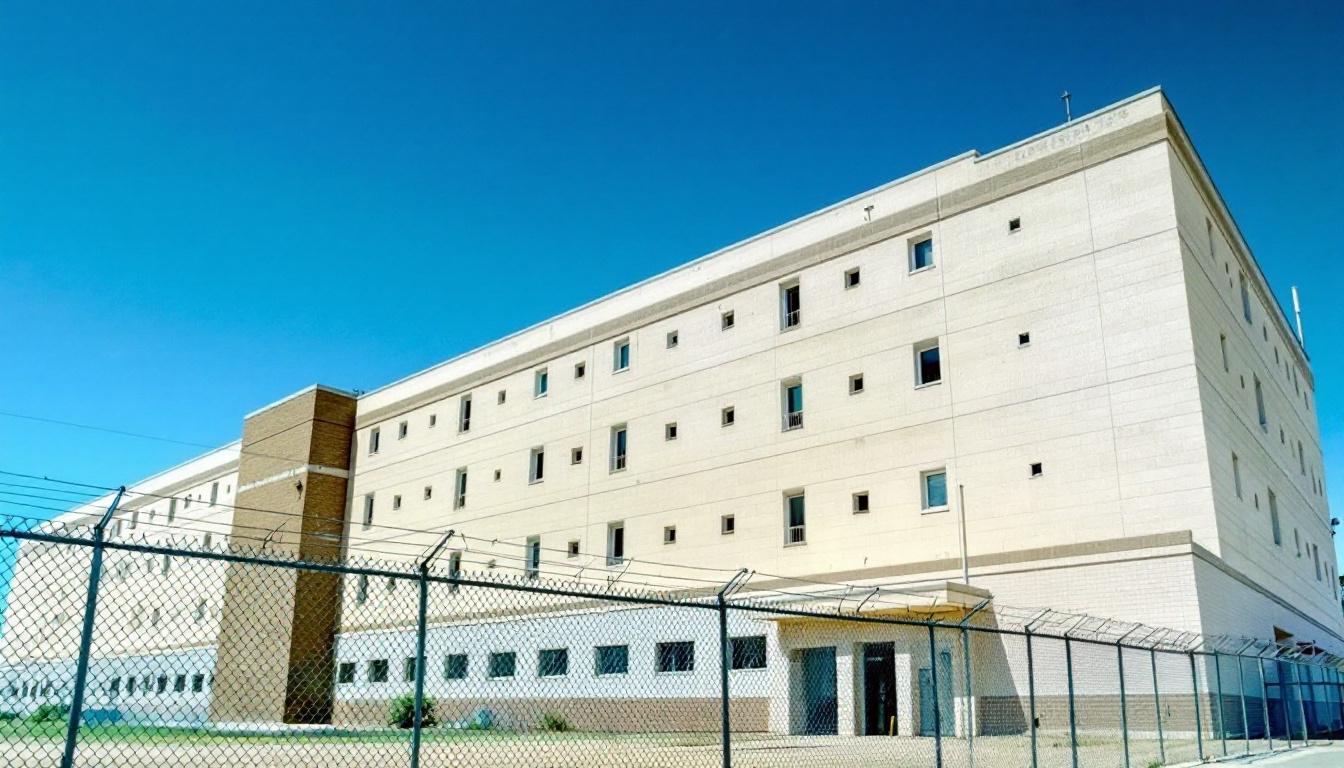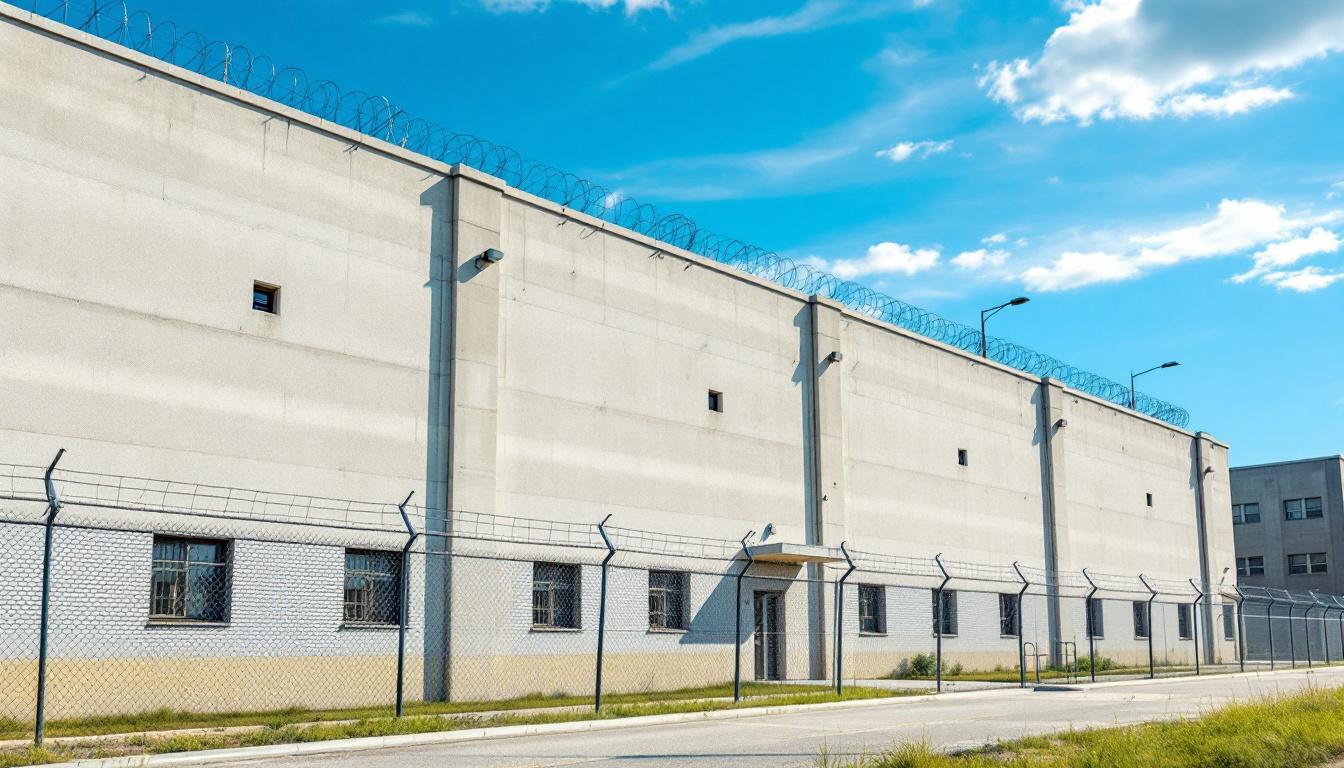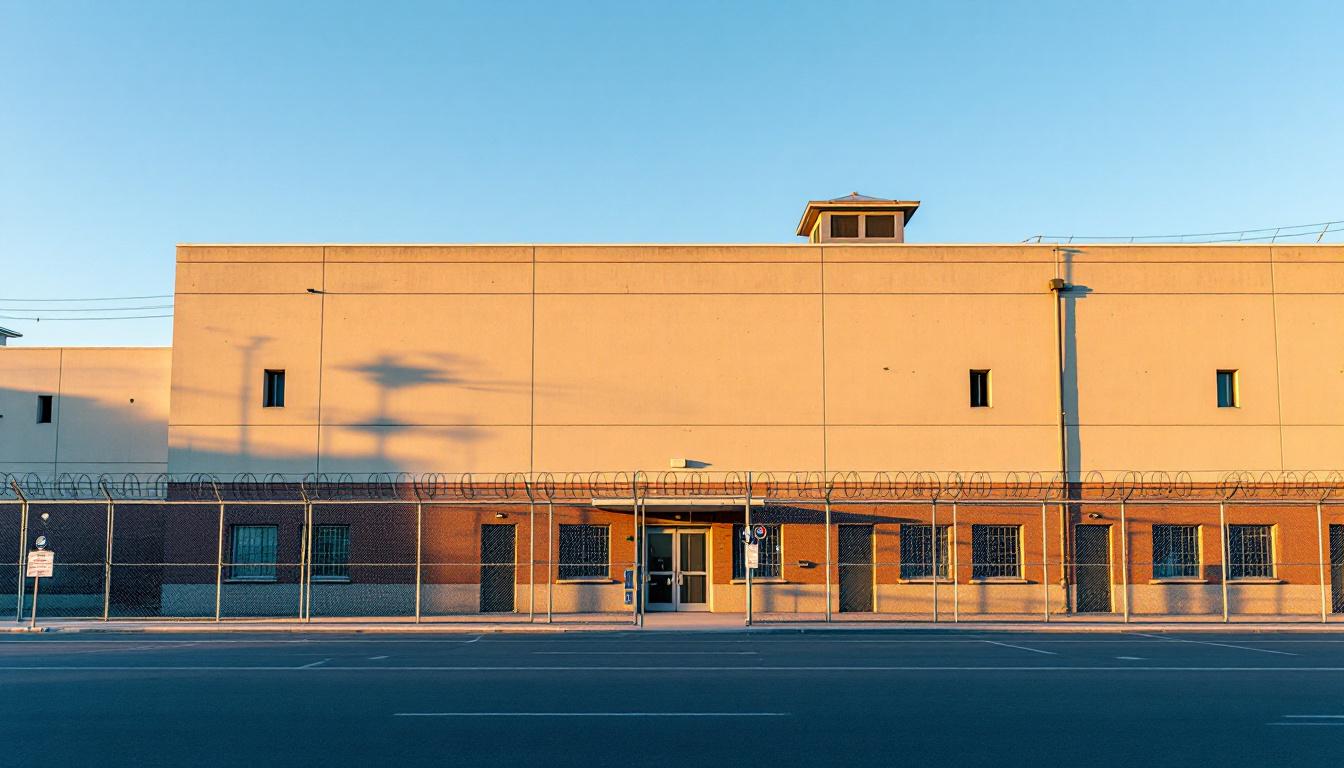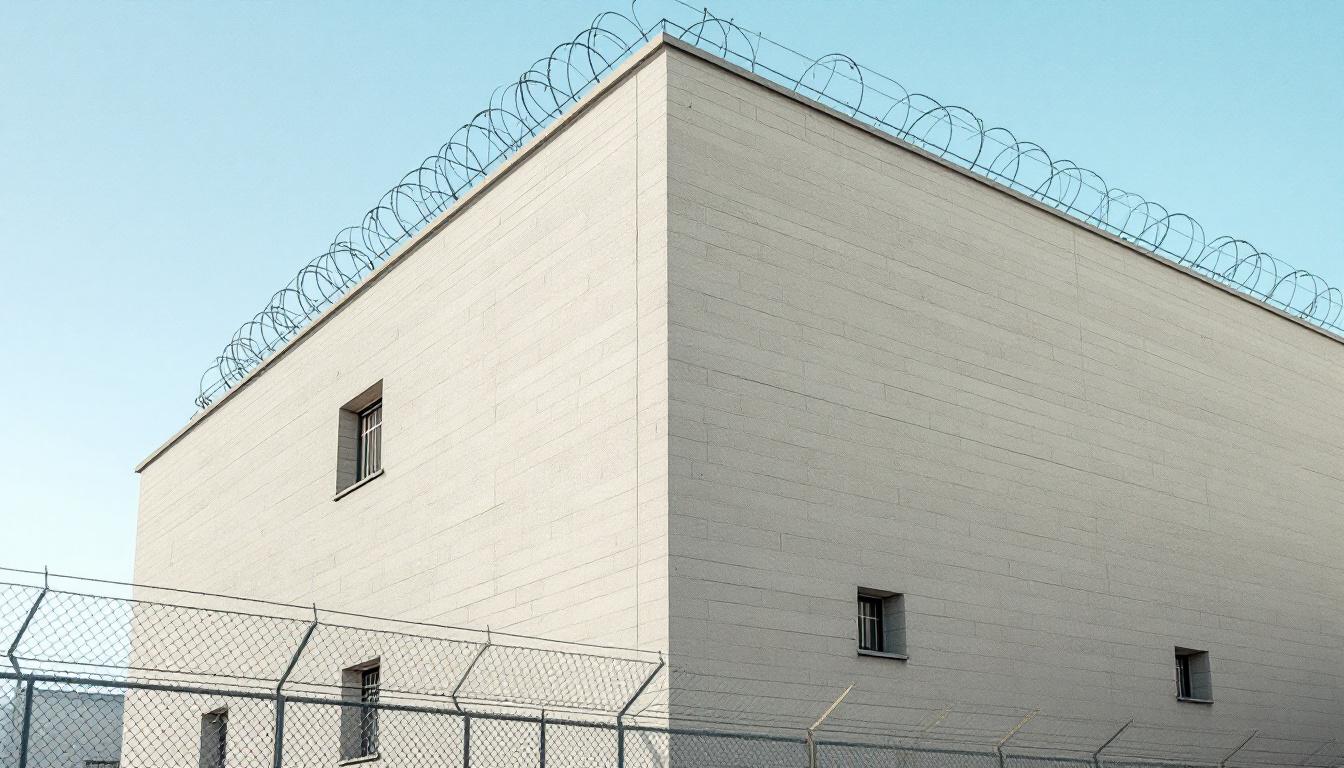
Quick Navigation
How to contact an inmate at Morgan County Adult Detention Center
This comprehensive guide will walk you through how to connect with an inmate at Morgan County Adult Detention Center. Follow the steps below to find an inmate and send letters and photos:
- Search for the inmate using our search tool below
- Create your account or log in to Penmate
- Write your message (up to 6,000 characters)
- Send instantly - inmates receive printed copies daily
Find an Inmate
Search for an inmate to start communicating today
Tip: You can search by first name, last name, or inmate ID number
To contact a person at Morgan County Adult Detention Center start by searching for the person on the official facility website. Perform a search by following these steps:
- Step 1: Enter their first name and last name into the search form and click "Search"
- Step 2: Locate their inmate record
- Step 3: Write down their Inmate ID and any housing information provided
Important! Be sure to enter the person's full name. Nicknames should not be used.
How to Send Messages to Inmates

You can use your phone or computer to send emails, letters, and photos to an inmate. Messages are sent electronically to inmate tablets or kiosks at the facility. If you would like to send a message, start by searching for an inmate at Morgan County Adult Detention Center.
Sending Photos and Postcards

A great way to send love and support to a loved one at Morgan County Adult Detention Center is to send photos and postcards. It only takes a few minutes to send photos from your phone and it makes a huge difference. You can also mail postcards with words of support and inspiration, or design your own postcard for special moments like birthdays and holidays.
Important! Be sure not to send any explicit photos or they may not be approved by the facility. You can also use a photo printing app like Penmate to make sure your photos are printed at the correct size (4x6 or 3x5) and are mailed according to the rules and regulations of Morgan County Adult Detention Center.
Frequently asked questions about Morgan County Adult Detention Center
-
How long does it take to deliver a message?
If you're sending an email message your letter is usually delivered within 24-48 hours. For messages sent via mail you should expect delivery within 3-7 days. All messages will need be approved by Morgan County Adult Detention Center.
-
How much does it cost to send a message to Morgan County Adult Detention Center?
You can send a message free using your phone or mail a message via USPS for the price of a $0.60 stamp and envelope. You can also purchase credits or e-stamps from services starting at $1.99.
-
What services can I use to contact an inmate at Morgan County Adult Detention Center?
Penmate
You can use Penmate to send letters and photos to an inmate from your phone. It's an easy way to stay in touch during your loved one's incarceration. Use the inmate locator to find an inmate's location and contact information, then you can send messages within a few minutes.
Securus messaging
Securus may be another option for communicating with an inmate at Morgan County Adult Detention Center. You can create a friends and family account and purchase credits to send messages. All messages will be reviewed and must be approved by the facility.
JPay
Some county jails and state prisons may support sending messages with JPay. You must register an account with the system, find your loved one, and purchase stamps to send messages. For some locations you can also attach photos.
Smart Jail Mail
You may also check if Smart Jail Mail is available at Morgan County Adult Detention Center. Smart Jail Mail is operated by Smart Communications and has contracted with some state and county jails. After purchasing credits, your messages and photos are sent to the facility, printed out, and then handed out to your loved one.
-
What is the mailing address of Morgan County Adult Detention Center?
Mailing address:
Morgan County Adult Detention Center
211 E Newton St
Versailles, MO 65084
Phone: (573) 378-6860Business hours:
- Monday: Open 24 hours
- Tuesday: Open 24 hours
- Wednesday: Open 24 hours
- Thursday: Open 24 hours
- Friday: Open 24 hours
- Saturday: Open 24 hours
- Sunday: Open 24 hours
-
What are the visiting hours at Morgan County Adult Detention Center?
Visiting hours at Morgan County Adult Detention Center vary by housing unit and security level. Generally, visits are scheduled on weekends and holidays, with some facilities offering weekday visits. Contact the facility directly at (573) 378-6860 or check their website for the current visiting schedule. Visits typically last 30-60 minutes and must be scheduled in advance.
-
What items are prohibited when sending mail to Morgan County Adult Detention Center?
Prohibited items typically include: cash, personal checks, stamps, stickers, glitter, glue, tape, staples, paperclips, polaroid photos, musical or blank greeting cards, hardcover books, magazines with staples, and any items containing metal or electronics. Only send letters on plain white paper with blue or black ink. Photos must be printed on regular photo paper (no Polaroids). Always check with Morgan County Adult Detention Center for their specific mail policies.
-
How do I send money to an inmate at Morgan County Adult Detention Center?
You can send money to an inmate at Morgan County Adult Detention Center through several methods: 1) Online using JPay, Access Corrections, or the facility's approved vendor, 2) Money orders mailed directly to the facility with the inmate's name and ID number, 3) Kiosks located in the facility lobby, or 4) Over the phone using a credit or debit card. Fees vary by method, typically ranging from $2.95 to $11.95 per transaction.
-
Can I schedule a video visit with an inmate at Morgan County Adult Detention Center?
Many facilities now offer video visitation as an alternative to in-person visits. At Morgan County Adult Detention Center, video visits may be available through services like Penmate, Securus Video Connect, GTL, or ICSolutions. Video visits typically cost $10-20 for 20-30 minutes and must be scheduled in advance. You'll need a computer or smartphone with a camera and reliable internet connection. Contact the facility for their specific video visitation policies and approved vendors.
-
What identification do I need to visit an inmate at Morgan County Adult Detention Center?
All visitors must present valid government-issued photo identification such as a driver's license, state ID, passport, or military ID. Minors must be accompanied by a parent or legal guardian who can provide the minor's birth certificate. Some facilities require visitors to be on the inmate's approved visitation list, which may require a background check. Contact Morgan County Adult Detention Center for specific ID requirements and visitor approval procedures.
-
How can I find out an inmate's release date?
To find an inmate's release date at Morgan County Adult Detention Center, you can: 1) Use the online inmate search tool if available, 2) Call the facility's records department, 3) Contact the inmate's case manager or counselor, or 4) Have the inmate provide this information during a call or visit. For privacy reasons, some facilities only release this information to immediate family members.
Facility Overview
Contact Information
Morgan County Adult Detention Center211 E Newton St
Versailles, MO 65084
Phone: (573) 378-6860
Official Website
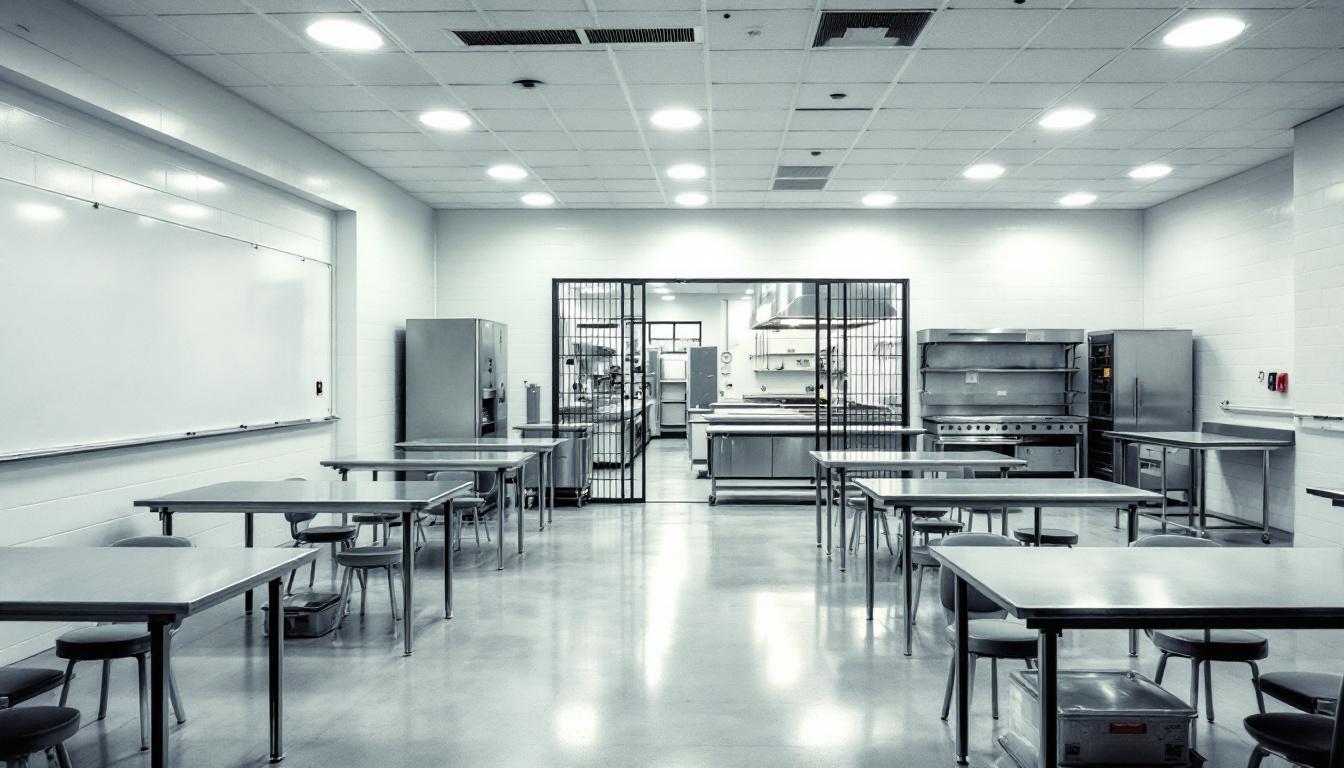
About Morgan County Adult Detention Center
Nestled in the heart of Versailles, Missouri, the Morgan County Adult Detention Ctr serves as a cornerstone facility within the state's broader correctional network, emphasizing both secure custody and meaningful pathways toward community reintegration. This MO correctional facility operates with a dual commitment to maintaining public safety while fostering environments where individuals can engage in constructive programming designed to support their eventual return to community life. The facility's approach typically centers on creating accessible opportunities for personal growth, recognizing that effective detention involves more than secure housing—it requires structured support systems that address the underlying factors contributing to criminal behavior.
The detention center generally offers a range of residents services that may include educational programming, substance abuse counseling, and vocational training opportunities tailored to the needs of the local community. Staff members often work to connect individuals with resources that extend beyond their time in custody, potentially including job placement assistance and mental health support services. Located within Missouri's midwest region, the facility typically maintains connections with local organizations and service providers, creating networks that can support successful community reintegration. This comprehensive approach reflects an understanding that rehabilitation requires collaborative efforts between correctional staff, community partners, and the individuals themselves, fostering an environment where positive change becomes possible through accessible programming and dedicated support systems.
Programs & Services
Comprehensive rehabilitation through structured learning opportunities forms the foundation of resident development initiatives at Morgan County Adult Detention Center. The facility typically emphasizes skill-building and personal growth through evidence-based programming that addresses both immediate needs and long-term reintegration goals. Residents may participate in multiple initiatives simultaneously, creating a holistic approach to personal development that often includes academic advancement, practical skill acquisition, and therapeutic support services.
Educational initiatives may deliver fundamental literacy programs designed to strengthen reading, writing, and basic mathematics skills for residents who need academic foundation building. These programs often include GED preparation courses that help participants earn their high school equivalency credentials during their time at the facility. Additionally, vocational training initiatives typically focus on practical skills development in areas such as construction basics, food service preparation, and general maintenance techniques. Job readiness training may complement these vocational programs by providing residents with resume writing assistance, interview preparation, and workplace communication skills that support successful employment upon release.
Therapeutic initiatives often include substance abuse treatment programming that addresses addiction issues through group counseling sessions and educational workshops about recovery strategies. The facility may deliver dual diagnosis treatment services for residents who experience both substance abuse and mental health challenges, providing integrated care that addresses both conditions simultaneously. Additionally, these support services typically incorporate life skills training that helps residents develop budgeting abilities, conflict resolution techniques, and healthy relationship building strategies that contribute to successful community reintegration.
Daily Life & Visitation
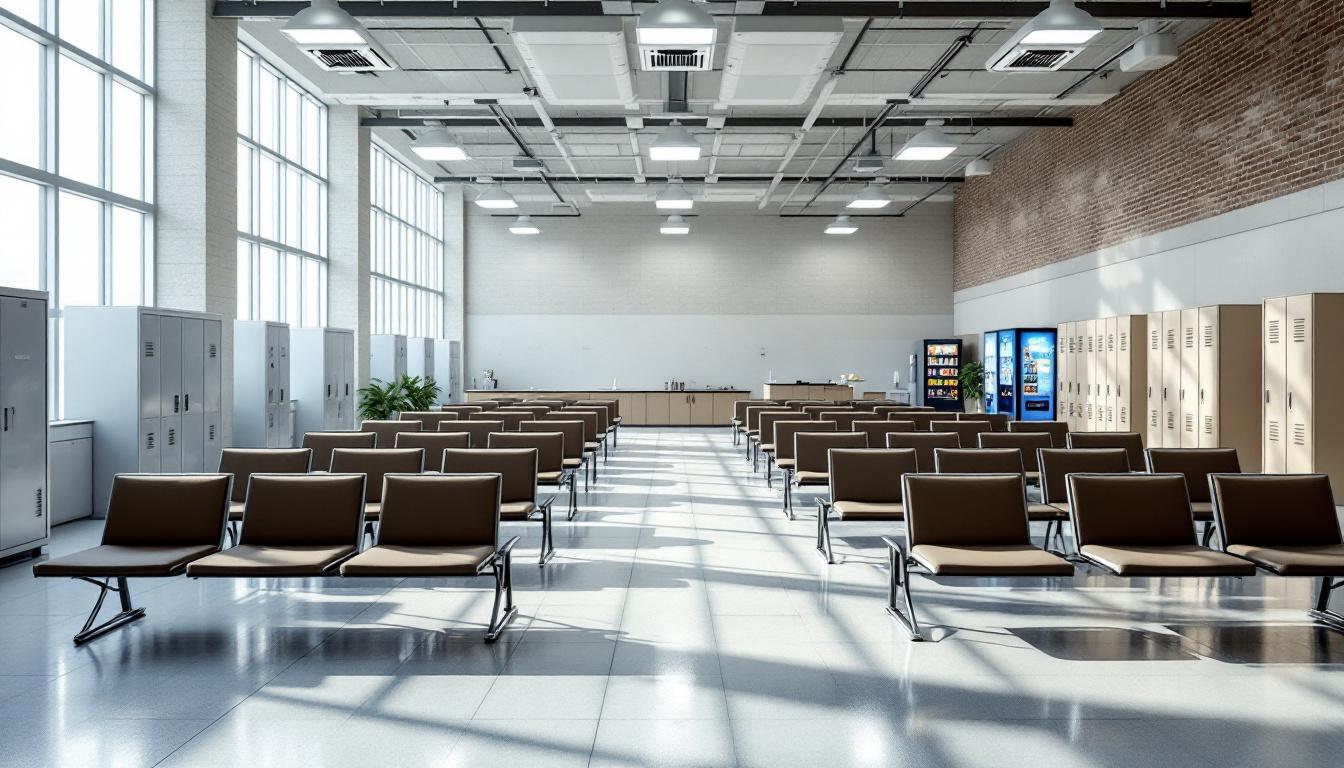
Structure and predictability form the foundation of each day, as residents follow carefully organized schedules that begin early and continue through evening hours. Today's routine typically mirrors yesterday's, creating a consistent framework that many residents find helpful for maintaining stability. Wake-up calls generally occur in the early morning hours, followed by facility counts, meal service, and the day's scheduled activities that deliver both purpose and routine.
Living accommodations at the facility typically consist of shared housing units where residents are assigned based on various classification factors. Each housing area generally includes basic furnishings and personal storage space for approved belongings. Meals are usually served at designated times in common dining areas, with menus planned to meet nutritional requirements. While personal property is limited to approved items, residents may typically access commissary services to purchase additional personal care items and snacks, subject to facility guidelines and account balances.
Additionally, structured programming schedules often include work assignments within the facility, such as kitchen duties, maintenance tasks, or cleaning responsibilities that help residents contribute to daily operations. Recreation time may offer opportunities for physical exercise, television viewing, or reading materials from the facility library. Family connections remain important through scheduled visitation periods and phone privileges, which generally operate according to established guidelines. These various components work together to create an environment where residents can maintain family relationships while adapting to the structured daily routine that characterizes life at the facility.
Ready to Connect?
Start communicating with your loved one today
Search for an Inmate
